Russell Letson reviews Tomorrow’s Kin by Nancy Kress
Tomorrow’s Kin, Nancy Kress (Tor 978-0-765390295, $25.99, 352pp, hc) July 2017.
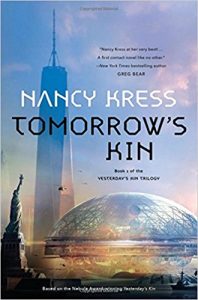 I’m going to have the same problem reviewing Nancy Kress’s Tomorrow’s Kin that I did with Steal Across the Sky a few years back: how to describe its virtues without giving away what are clearly meant to be surprises. (As I have not seen the finished book, I don’t know what hints and details the jacket copy might offer.) If some of this seems a bit vague or elliptical, then, assume that I am protecting your first-reading experience.
I’m going to have the same problem reviewing Nancy Kress’s Tomorrow’s Kin that I did with Steal Across the Sky a few years back: how to describe its virtues without giving away what are clearly meant to be surprises. (As I have not seen the finished book, I don’t know what hints and details the jacket copy might offer.) If some of this seems a bit vague or elliptical, then, assume that I am protecting your first-reading experience.
I can reveal that this novel offers first contact with extraterrestrials who are perhaps less alien than one might have thought; the threats and promises that such contact bring; the range of psychological, social, and political reactions to said threats and promises; and the muddling-through actions of well-meaning protagonists who do not possess superpowers (though there is at least one Wild Talent). Add dashes of intrigue thriller and difficult family dynamics and the recipe is complete.
The subtitle, “Book 1 of the Yesterday’s Kin Trilogy”, signals that the novel is an expansion of the Nebula-winning 2014 novella Yesterday’s Kin, which constitutes Part I, so it is perhaps not entirely Spoilerish to reveal that at the heart of that section is some very mixed good/bad news. The good news: friendly aliens land in New York Harbor, demonstrating that we are not alone in the universe. The interesting news: the Denebs (as they are incorrectly called) are actually genetically human, our long, long lost cousins, who have created a technologically advanced, peaceful, star-traveling society. The bad news: they’ve come to warn us that a dust cloud of deadly “spores” is drifting our way, and it’s going to wipe out Earth’s humans, just as it has some of the Denebs’ colonies.
In the middle of all this is Marianne Jenner, a middle-aged, upper-midgrade evolutionary biologist whose work on analyzing mitochondrial DNA gets her a slot in the team of specialists drafted to deal with the Denebs. The relevance of her research is that it establishes a link, going back 150,000 years, between the visitors and Earth humans. The Denebs have a strong cultural urge to identify Earthfolk with whom they share that ancient mitochondrial DNA strain – they see them as members of a much-extended family, and while other scientists work frantically with the Denebs to discover a countermeasure to the spores, Marianne has the job of finding humans who are kin to the visitors.
On top of worries about the fate of the world, Marianne has her own family problems to cope with. The arrival of the Denebs sets her three adult children off in different directions, none of them happy. Daughter Elizabeth is a hard-ass border-security agent who doesn’t trust anything the visitors say and would love to deport them. Elder son Ryan is an ecologist specializing in invasive species – and he’s inclined to include visitors from the stars in that category. Marianne isn’t sure that her “problem child,” younger son Noel, “even realized the aliens were here.” He is psychologically and physically adrift, hooked on a drug that allows him to temporarily take on different personalities, and when he encounters the Denebs, he finally finds a permanent identity and a tribe to belong to.
In fact, Earth’s population is not wiped out, but in Parts II and III a number of other unpleasant things happen after the Denebs depart. Some are unexpected ecological and economic results of the spore-cloud infection, while others arise from conflicts over the meaning of and motives behind the aliens’ visit – even their parting gift of plans for a starship that Earth humans can build without understanding the underlying technologies. Most of the popular reactions before and after are fear-or anger-induced: irrational, ignorant, and dangerous, leading to everything from political posturing and deadlock, to protests and riots, to sabotage, murder, and terrorism. Right from the start there are those who view the Denebs as some kind of threat (as do Marianne’s daughter and son), while others hate and fear them and see the spore cloud “as the End Times, or God’s cleansing, or one of the Four Horsemen of Apocalypse.” After the cloud’s passing, though, the “bimodal distribution” of attitudes toward starship-building projects fall more along economic lines of winners and losers. Not that emotions have cooled much.
There was a third group, small but very vocal online, who both hated Denebs and wanted… to travel to World. They wanted revenge, to hit World as hard as the spore plague had hit Earth.
Even when Marianne is no longer in the public eye, she is still vulnerable and involved. She finds a patron and then an employer and protector in a flamboyant billionaire who is determined to build and launch a Deneb-design starship. Marianne needs protection not only for herself as part of the Denebs’ researches and later as part of the starship project, but for her grandchildren, one of whom shares a spore-generated affliction that affects children across the planet. Then grandson Colin manages to turn the affliction into a gift, and various hidden agendas emerge, and the world has to adjust to our place in the infinities yet again.
The book is filled with themes and motifs that echo much of Kress’s previous work: the unintended consequences of technology; children with Wild Talents (the Beggars sequence); encounters with aliens peaceful and otherwise (Steal Across the Sky, Crucible, Crossfire); strangely cohesive and peaceful extraterrestrial societies (“The Flowers of Aulit Prison” and the Probability trio); various bio/techno-thriller intrigues (Maximum Light, Stinger); and the persistence and interpenetration of folly and decency at every level of human interaction, from family and workplace upward (practically every book for the last two decades). While one set of problems is settled in this volume, other issues and questions are left unresolved and unanswered, and we already know that it will take the next two books to settle everything down – at least, as much as anything is ever settled in a Kressian universe. That’s where the real surprises lurk.
Russell Letson, Contributing Editor, is a not-quite-retired freelance writer living in St. Cloud, Minnesota. He has been loitering around the SF world since childhood and been writing about it since his long-ago grad school days. In between, he published a good bit of business-technology and music journalism. He is still working on a book about Hawaiian slack key guitar.
This review and more like it in the August 2017 issue of Locus.


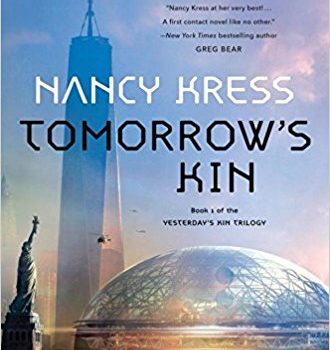


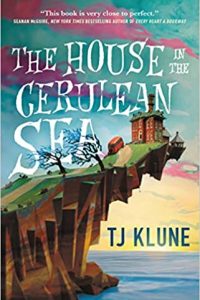
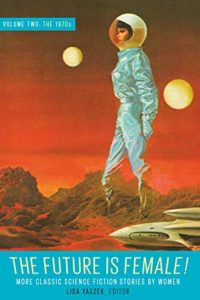
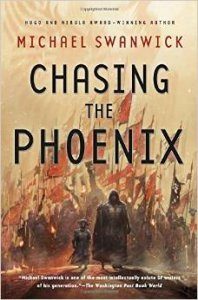

My summation of this book was ‘mice are really important’.
Is it possible to buy this and other books as epubs? I don’t do hardcovers or paperbacks, and audio books hold no interest for me. Nor will I buy from Amazon. This seems to somewhat limit what is available for readers.
Perhaps an article aimed at people who would like to read epubs would be well received – you never know.